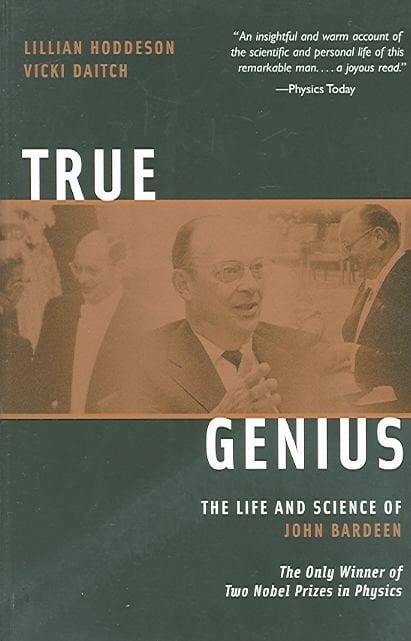John Bardeen was an unassuming man, a humble, soft-spoken Midwesterner whose life was filled with simple pastimes like a Sunday picnic with the family or a good game of golf. He was also a giant of modern physics, an extraordinary hero of twentieth century science. His seminal work earned him the distinction of being the only person ever to win two Nobel Prizes in physics - both awarded for discoveries that were breathtaking in scope and responsible for advancing the course of human history. Without Bardeen’s first Nobel Prize-winning discovery - the transistor - the electronics revolution, which brought us desktop computers, supercomputers, and microelectronics, would still be the stuff of science fiction. His second great breakthrough - the theory of superconductivity, which for years had stumped Einstein, Feynman, and many others - promises to revolutionize twenty-first century technology with high speed “mag-lev trains,” supercolliding atom smashers, and other fantastic technological wonders. Yet despite these achievements, this astonishing though decidedly modest Midwesterner was often overlooked by the media as well as the public, simply because he differed radically from the popular stereotype of genius. Through an exploration of his science as well as his life, a fresh and thoroughly engaging portrait of genius and the nature of creativity emerges. This biography provides a whole new perspective on what it truly means to be a genius.












